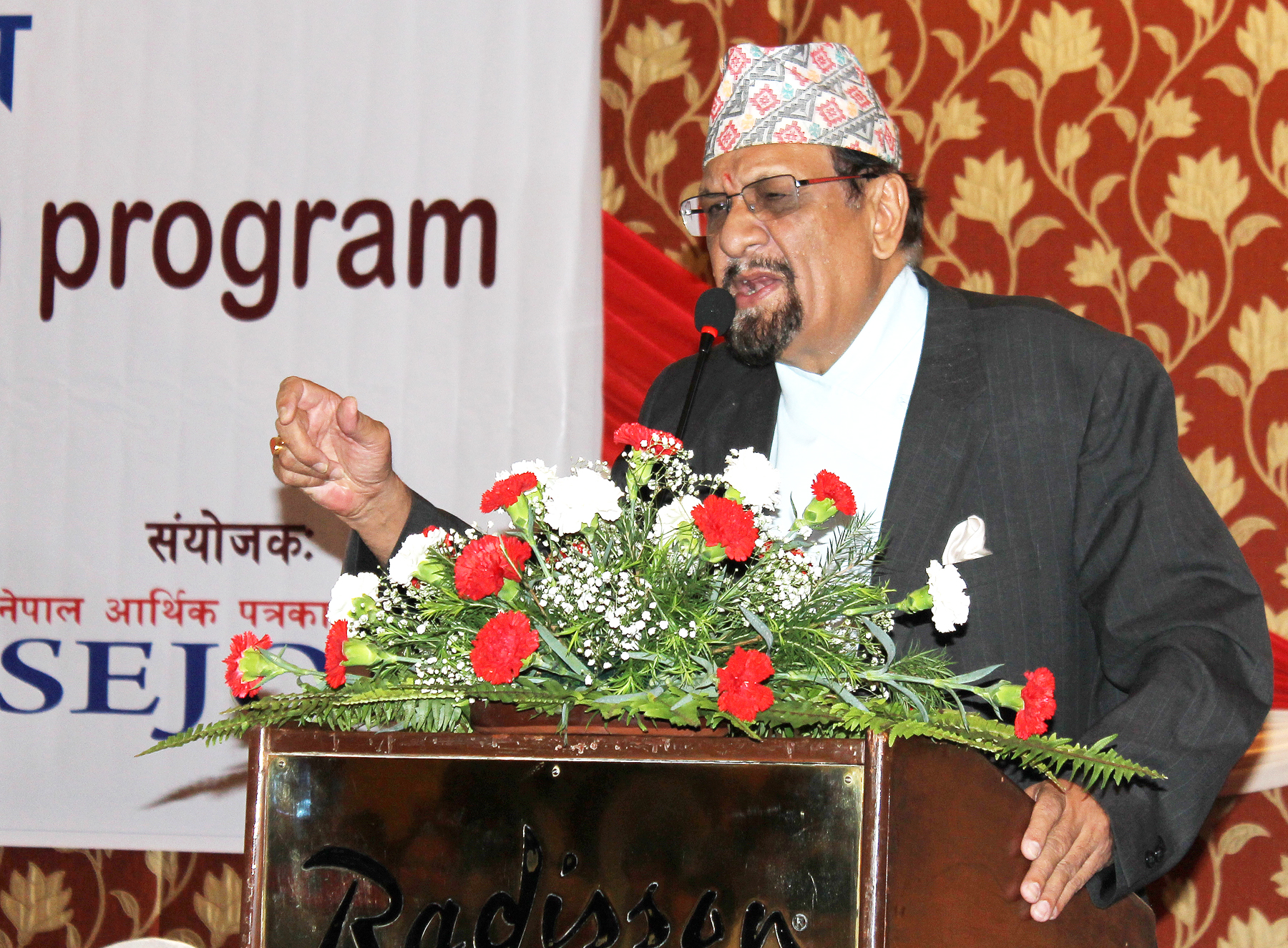Mahat warns of humanitarian crisis
Kathmandu, September 28
Finance Minister Ram Sharan Mahat today said the country might even face ‘humanitarian crisis’, if cargo trucks laden with essential commodities fail to enter Nepal from Indian border points in the coming days.
“The semi-blockade or severe restriction in supply of goods from the Indian side has created shortage of various commodities in the country, especially petroleum products,” the minister said. “I hope a solution would be found in a few days. Otherwise, we may face a humanitarian crisis.”
The minister was addressing a meeting called to brief Nepal-based donor agencies about the new constitution that came into effect last week and protests in the Tarai fuelled by promulgation of the charter.
Although Nepal’s new constitution — endorsed by almost 85 per cent of the Constituent Assembly members, who were elected by people — has been welcomed by many in the country and abroad, some Madhes-based political parties and groups are not happy with it.
These disgruntled groups have been holding various forms of protests around Nepal-India border points, severely affecting movement of people and vehicles, including cargo trucks that carry essential goods.
Protests called by Madhesi groups have also created shortage of raw materials, leading to closure of manufacturing units, crippled tourism and services industries, and dealt a severe blow to the country which was trying to rise from the rubble of the earthquakes of April and May.
“At many places protesters have even issued threats to forcefully shut down factories, which is a setback for the economy,” Minister Mahat told the meeting attended by ambassadors of different countries, and high-ranking officials of multilateral lending agencies and international non-governmental organisations — albeit Indian representative was not present.
These incidents, according to him, are taking place because there are misgivings about the new constitution. “And this is because wrong information is being floated about the constitution,” he said.
Although Mahat acknowledged the new constitution was ‘not a perfect document, he said it was built on rights-based approach and has tried to address the needs of women, children, differently-able people, minority groups, Madhesis, Tharus, Dalits, indigenous and ethnic groups, and the third gender’. “So, it responds to aspirations of Nepalis living in mountains, hills and Tarai-Madhes,” Mahat said.
For instance, the constitution guarantees one-third membership at all levels of governance to women, while eight seats allocated for each province in the Upper House have to be filled with at least three women, one Dalit and one physically impaired or member of a minority group, Mahat added.
Also, the constitution makes it mandatory for upcoming presidents and vice presidents to be of different genders and from different communities, while either speaker or vice-speaker of the House of Representatives has to be a woman.
Furthermore, the constitution calls for formation of separate constitutional bodies to protect and uphold rights of women, indigenous groups, Madhesis, Tharus and Muslims.
“Everyone has to abide by these constitutional arrangements and separate laws will have to be formulated within three years to implement these provisions,” Mahat said, adding, “I hope Madhesi parties would take Prime Minister Sushil Koirala’s assurance to make necessary amendments to the constitution positively and agree to compromise.”





